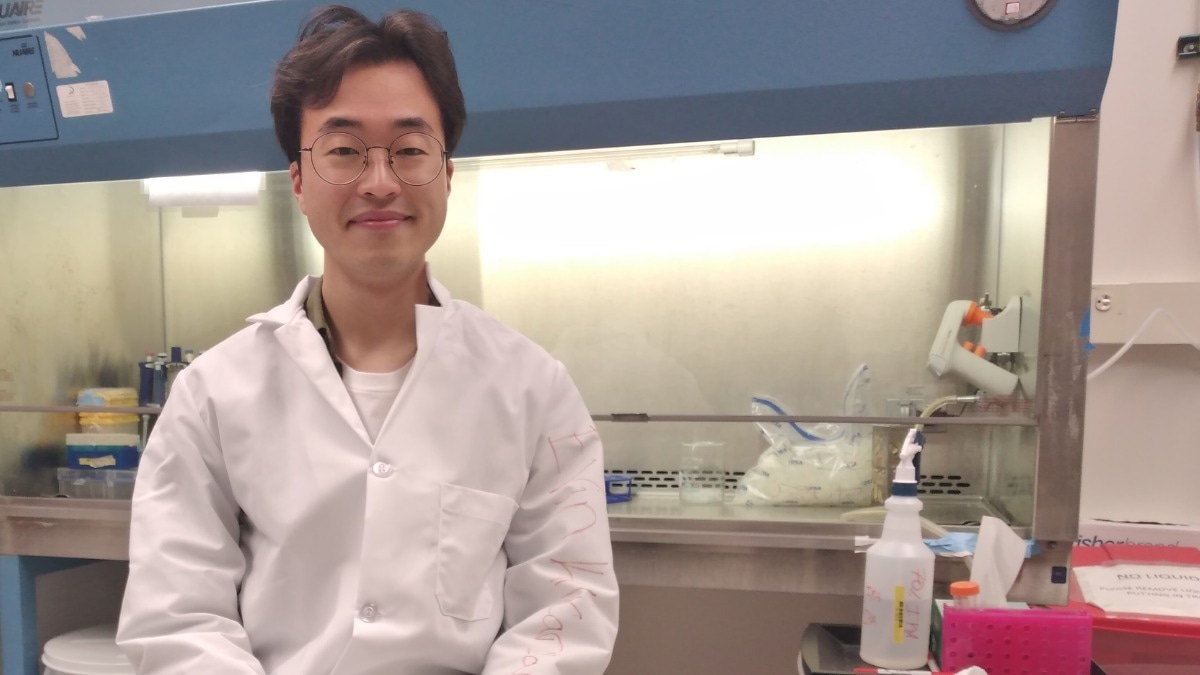Reviewed by Danielle Ellis, B.Sc.Apr 19 2023
Physical activity is often quoted as a method of increasing mental and physical health. Scientists at the Beckman Institute for Advanced Science and Technology have proved that it might also enhance brain health more directly. They researched how the chemical signals that are released by muscle exercise encourage neuronal development in the brain.

Ki Yun Lee. Image Credit: University of Illinois Urbana-Champaign
Neuroscience published this study.
When muscle contraction happens during exercise, such as a bicep functioning to lift a bulky weight, they expel a range of compounds into the bloodstream. Such compounds can move to various body parts, including the brain. The scientists were specifically keen on knowing how exercise could be advantageous to a specific part of the brain known as the hippocampus.
“The hippocampus is a crucial area for learning and memory, and therefore cognitive health,” said Ki Yun Lee, a PhD student in Mechanical Science and Engineering at the University of Illinois Urbana-Champaign. Lee is also the lead author of the study. Understanding how exercise can be advantageous to the hippocampus could thus result in exercise-based treatments for a range of conditions, such as Alzheimer’s disease.
To segregate the chemicals expelled by contracting muscles and examine them on hippocampal neurons, the scientists gathered small muscle cell samples from mice and grew them in the laboratory in cell culture dishes. Upon the maturation of muscle cells, they started to shrink on their own, thereby releasing their chemical signals into the cell culture.

Image Credit: BGStock72/Shutterstock.com
The study group added the culture, which now comprised the chemical signals from the grown muscle cells, to another culture that comprised hippocampal neurons and other support cells called astrocytes. Researchers assessed how exposure to these chemical signals impacted the hippocampal cells with many approaches, which include immunofluorescent and calcium imaging to monitor cell growth and multi-electrode arrays to record neuronal electrical activity.
The outcomes were striking. The chemical signals’ exposure from contracting muscle cells made hippocampal neurons produce bigger and more frequent electrical signals, which is a sign of strong health and growth. In just some days, the neurons began firing these electrical signals more synchronously, which proposes that the neurons were creating a more mature network jointly and simulating the neurons’ organization in the brain.
The scientists, however, still had doubts about how these chemical signals resulted in the growth and development of hippocampal neurons. Next, they concentrated on the astrocytes’ role in facilitating this relationship to discover more of the pathway-linking exercise to improved brain health.
“Astrocytes are the first responders in the brain before the compounds from muscles reach the neurons,” Lee added. Maybe, then, they served a part in aiding neurons to respond to these signals.
The scientists discovered that removing astrocytes from the cell cultures made the neurons fire even more electrical signals, which suggests that the neurons continued to grow even without the astrocytes—maybe to a point where they may get unmanageable.
Astrocytes play a critical role in mediating the effects of exercise. By regulating neuronal activity and preventing hyperexcitability of neurons, astrocytes contribute to the balance necessary for optimal brain function.”
Ki Yun Lee, Study Lead Author and PhD Student, Mechanical Science and Engineering, University of Illinois Urbana-Champaign
Comprehending the chemical pathway between the growth and regulation of hippocampal neurons and muscle contraction is just the beginning step in understanding how exercise aids in improving brain health.
“Ultimately, our research may contribute to the development of more effective exercise regimens for cognitive disorders such as Alzheimer's disease,” Lee concluded.
Along with Lee, the team also had Beckman faculty members Justin Rhodes, a professor of psychology, and Taher Saif, a professor of mechanical science and engineering.
Source:
Journal reference:
Lee. K. Y., et al. (2023) Astrocyte-mediated transduction of muscle fiber contractions synchronizes hippocampal neuronal network development. Neuroscience. doi.org/10.1016/j.neuroscience.2023.01.028.